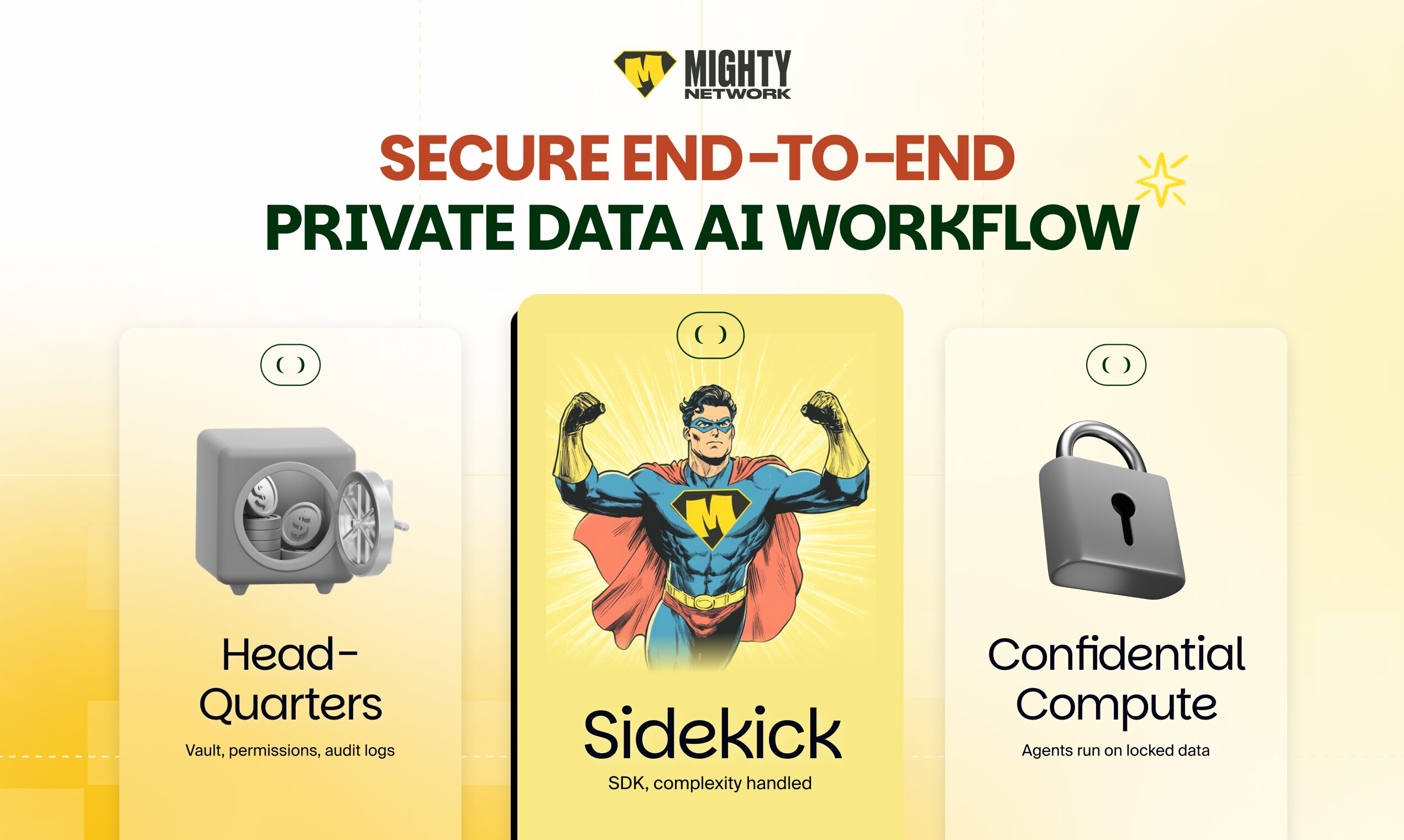Table of Contents
Overview
In the rapidly evolving landscape of AI agents and automated systems, securing access to sensitive data has become a paramount concern for enterprises. Mighty represents an emerging platform in the AI security space, designed to address the complex challenges of enabling AI agents to interact with private and regulated data while maintaining strict security and compliance standards. While the AI agent security market is still developing, the need for specialized solutions that can handle the unique requirements of automated systems accessing sensitive information continues to grow.
Key Features
Based on available information, Mighty positions itself as a comprehensive AI security platform with several core components:
- Client-side data protection: Implementation of client-side encrypted data vaults where users maintain control over their encryption keys and can review data access requests.
- Secure API integration: Tools for enabling AI agents to securely interact with external APIs and services while maintaining user consent and authorization.
- Access control management: Policy engines designed to manage permissions and access controls specifically for AI agent interactions with sensitive data.
- Compliance infrastructure: Built-in auditing and compliance features to help organizations meet regulatory requirements when AI agents handle private information.
How It Works
Mighty’s platform operates through a multi-layered security architecture designed for AI agent interactions. The system appears to use client-side encryption where sensitive data remains encrypted until processing is required. According to company information, the platform includes components called “Headquarters” for data vault management, “Sidekick” as an integration SDK, and “League” for secure compute operations in hardware-backed environments. The system is designed to ensure that AI agents can access only the specific data they need for their tasks while maintaining audit trails and user consent mechanisms.
Use Cases
The platform targets specific scenarios where AI agents require access to sensitive information:
- Healthcare AI applications: Enabling AI systems to process patient data while maintaining HIPAA compliance and data privacy requirements.
- Financial services automation: Supporting AI agents in accessing financial data for analysis and decision-making while meeting regulatory standards.
- Legal document processing: Allowing AI systems to analyze legal documents and case files with appropriate access controls and audit trails.
- Enterprise data analysis: Enabling internal AI tools to access corporate databases and sensitive business information with proper authorization frameworks.
Pros \& Cons
Advantages
- Emerging market focus: Addresses the growing need for AI agent security in enterprise environments.
- Comprehensive approach: Attempts to provide end-to-end security for AI agent data interactions.
- Compliance orientation: Built with regulatory requirements and audit trails in mind.
- Modern architecture: Designed specifically for contemporary AI agent use cases rather than adapted from traditional security solutions.
Disadvantages
- Market maturity: As an emerging platform in a developing market, long-term viability and feature completeness remain to be proven.
- Limited public information: Detailed technical specifications and real-world performance data are not widely available.
- Integration complexity: Implementing comprehensive AI security solutions may require significant technical expertise and integration effort.
How Does It Compare?
The AI agent security market is still emerging, with several approaches being developed to address similar challenges.
ZITADEL offers open-source identity and access management with strong OAuth implementation and comprehensive self-service capabilities. While not specifically designed for AI agents, its flexible architecture and multi-tenant support make it suitable for complex authorization scenarios that AI systems might require.
Auth0 by Okta has recently introduced “Auth for GenAI” features specifically targeting AI agent authentication and authorization. This includes token vault capabilities for API access, async authorization for AI workflows, and fine-grained authorization for retrieval-augmented generation systems.
Traditional enterprise security solutions like those from major cybersecurity vendors typically focus on broader security concerns but may lack the specific features needed for AI agent interactions, such as dynamic permission management and audit trails optimized for automated decision-making.
Mighty’s positioning in this landscape appears to focus on providing a purpose-built solution for AI agent security, though the relative advantages compared to established identity management platforms with AI extensions remain to be demonstrated through real-world deployments.
Final Thoughts
The challenge of securing AI agent interactions with sensitive data represents a significant and growing concern for enterprises deploying automated systems. While platforms like Mighty aim to address this need with specialized solutions, the market is still evolving, and organizations should carefully evaluate their specific requirements against available options. The success of AI agent security platforms will ultimately depend on their ability to provide robust protection while maintaining the flexibility and performance that make AI agents valuable for business operations. As this market matures, we can expect to see continued innovation and refinement of approaches to AI agent security and compliance.
